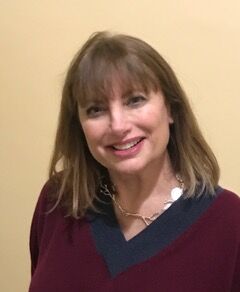
I recently had the opportunity to speak with Dr. Phyllis Kosminsky, a leading authority on the treatment of the bereaved. Dr. Kosminsky is a clinical social worker specializing in grief, loss, and trauma. She is a Fellow in Thanatology and the immediate Past President of the Association for Death Education and Counseling (ADEC). She has also authored two books: Getting Back to Life When Grief Won’t Heal and Attachment Informed Grief Therapy: The Clinician's Guide to Foundations and Applications.
We are certainly living through some very unusual times. I am wondering how you feel that COVID-19 has changed the face of grief.
Dr. Phyllis Kosminsky: One of the things that increases the risk of severe grief is trauma — trauma because of the suddenness of the loss, trauma resulting from witnessing a loved one’s suffering. The grief that we are seeing because of COVID-19 in many ways is traumatic grief. So that’s a starting point.
And then that grief is compounded by the restrictions imposed by the pandemic. Not being able to be with a loved one who is ill, being miles away, or even on the other side of a glass enclosure. The inability to comfort, to hold someone's hand is terrible. And it adds not only to the pain of the dying, but the pain of grief—because how can you not feel guilty? How can you not feel like you’ve failed in the one final gift we all want to give to someone we love?
Then, of course, there is what comes after. People can’t gather and can’t be comforted by others.
What are some of the creative ways that people have found to help them cope with grief during this pandemic?
PK: Let me say, first of all, that creativity is a good thing, but creativity takes energy and energy is something that is often in very short supply for people who are grieving. That being said, I would include here things that people have done to stay connected to their loved ones while they are ill, doing whatever they can to be a presence in the person’s life right up to the end, whether that means being on the other side of a window or on the other end of the phone.
People are finding creative ways to remember their loved ones, to celebrate their lives. People want and need to be able to mark the end of a loved one’s life with ritual, and they are finding ways to do that. What helps in grief is connection—connection to others and connection to the person who has died. That’s what helps and a lot of what people are doing is finding creative ways to maintain connection.
In the past 20 years, what developments have you seen in the study of grief?
PK: A lot of what we’ve learned has to do with the nature of grief — how it affects people, differences in how it affects people, differences in the severity and persistence of grief. We recognize that grief is highly individual — that there is no timeline, no stages that occur in a particular order, no defined endpoint, on ways to identify people who are at risk for problematic grief. [There's been a] great deal of work on how to help people whose grief is unrelenting and intense. There’s also been a great deal of research on the lasting effects of unresolved, unrecognized grief, the persistence of health problems, emotional problems, and problems in relationships.
Many people, including professionals, do not seem to understand the complexities of grief. Wondering if you could address this?
PK: We all want to believe that as painful as it is to lose a loved one, we can get through it. The truth is that most people do get through it. But I shudder at the suggestion that with a strong will, the right exercise, and diet and rest and especially the right attitude, people can wake up from grief, as though the death of their loved one was a bad dream.
Death is scary. Grief is painful. In our desire to mitigate the fear and pain, we risk minimizing the experience of grief. In emphasizing the positive things people can do to “get through" grief, we risk intensifying the isolation of the bereaved, who come to feel that their pain is a sign of weakness.
Many people do not feel intense or prolonged grief when someone close to them dies. Most of those who do feel emotional distress are able to manage it on their own, with the support of family and friends. But we cannot lose sight of the people for whom this is not the case.
One last request. Would you tell the readers about ADEC?
PK: ADEC is the oldest organization of professionals involved with death and dying in the United States. We are committed to enhancing education about grief and awareness of the impact of loss. We support and promote research that helps us understand the nature of grief and how to help people who are in grief. We encourage people to go to our website as it has an abundance of information about grief. This summer we did a series of webinars on COVID related grief that are available on our website.
Thank you for your time and for sharing your thoughts with us.




